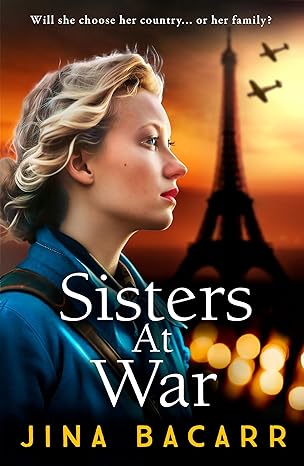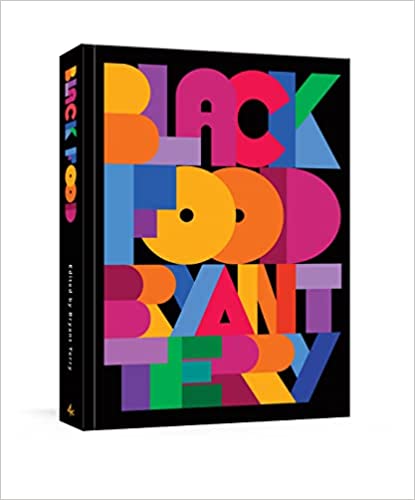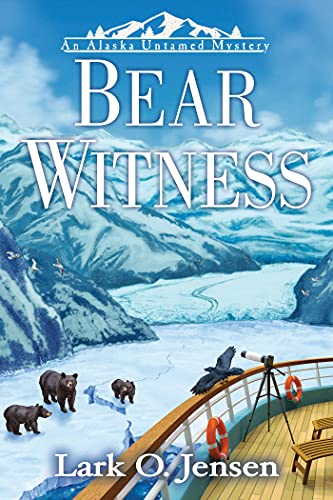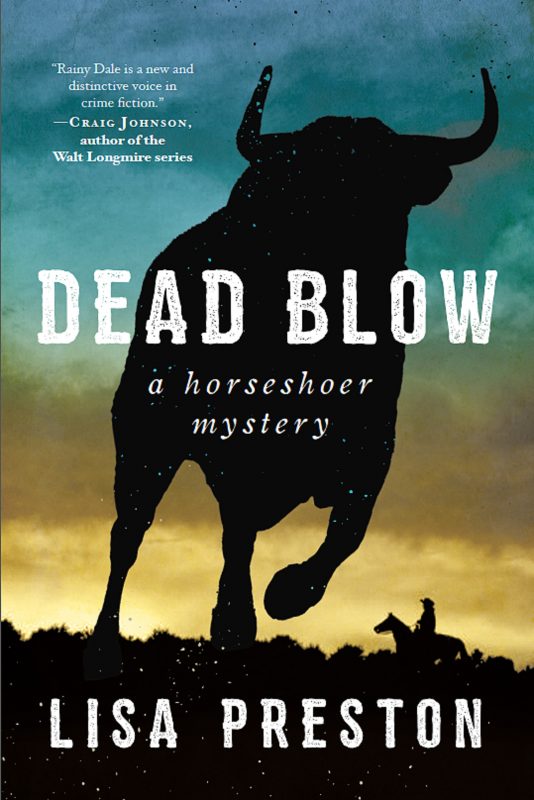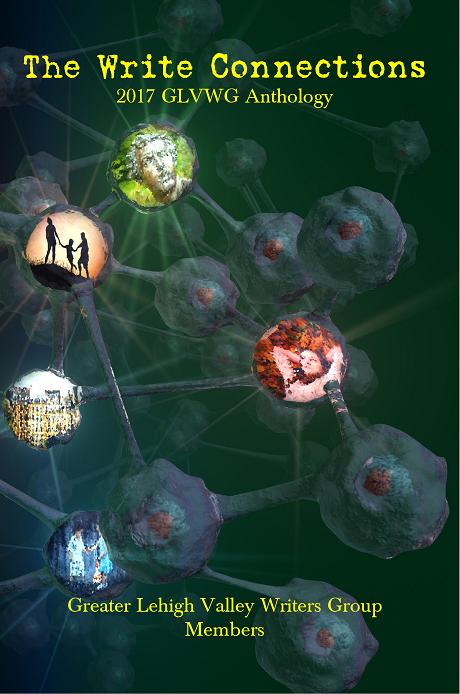Writer-Person Digs Deep
October 3, 2008 by Marianne H. Donley in category Archives tagged as Cait London, Craft, writingWe all have life-lint, memories/incidents/visual scenes that attach to us while we travel through our lives. Bits of our lives remain quietly attached to the writer, waiting to be tapped and used in a unique story.
Question: Are there really unique stories?
Answer: While certain underlying elements can be common, each writer’s style and life experiences create a unique story. Repeat: We are each unique with our own stories.
IMHO, the best stories are built from scratch, from digging around within our collection of life experiences. To start from a pre-made story line (i.e. Secret Baby) is not digging deep, not exploring the who/what/why layers, though the final story may fall within that pre-made category. For instance, in developing my psychic triplet trilogy, (FOR HER EYES ONLY* is an Oct 2008 release) I basically understood how a mother relates to her daughters, and how those daughters relate to each other (well, not in the psychic sense J). Or as Kathleen Eagle says, “I’m selling them off in pieces.â€
Sponge-like, the writer absorbs everything around him. My best story lines came while sitting in waiting rooms. Or traveling. The feel of the story locations came from actually visiting Montana, Lake Michigan, and Lexington, KY, the psychic triplets’ homes. Since I am basically artistic (a trait common to many writers), the handbags, sculptures, and jewelry designs were fun to fictionally create. I love Celtic jewelry and an ancient brooch is spotlighted in the psychic triplets’ story arc. Runes and Vikings have long intrigued me, as have psychic-seer elements. In short, much of Me is chocked within my novels.
Our own life experiences can be fictionalized. Just for fun, let’s bump them up, taking them to another dimension. Here’s mine (these can make a fun bio):
Landscape Designer (I’ve planted a few roses in my day.)
Interior Decorator (I’ve painted walls, shoved furniture around.)
CEO (I run my household.)
Technical Engineer (I can use a television remote.)
Chef (Pots and pans manager.)
Lighting Engineer (I change light bulbs.)
Director of Security (I lock the house doors.)
Director of Finances (I pay bills and budget.)
While that’s fun, it’s also a serious examination. When you actually make a list of what you do throughout the day, it’s quite long and filled with great story-fodder. Tap into yourself. Use You.

Cait London’s OCC writer series began last month. Visit CaitLondon.com for more on craft. FOR HER EYES ONLY, the conclusion of her psychic trilogy is an October 2008 release.
What’s Workin’ It Like?
September 3, 2008 by Marianne H. Donley in category Archives tagged as Cait LondonFOR HER EYES ONLY, the 3rd and last book of my Psychic Triplet Trilogy, is an October 2008 release, and I workin’ it.
Let’s define exactly what “workin’ it” means for an author in “hot-spot selling time” and the tools needed to be moderately effective.
In “hot-spotâ€, the month prior and the month of pub date, you’ll be updating your website and blogs frequently, sending e-newsletters, answering e-mail, keeping busy at MySpace, Facebook and others, making appearances, sending out contest prizes, traveling, and generally overloaded to the max–even if you’ve planned well for the hot spot.
Note: You can do a terrific amount on your own at low cost. Else, many well-published writers use professional publicists and many do little for promotion; they would rather use the time to write.
You’ll need planning tools (I can’t do without my PDA):
Building a set of promotion tools takes time and energy. Be aware that even light promotion calls for sturdy dedication. The very first decision for a writer who wants to promote is if they want to do it themselves. Promotion is a true time-sucker (technical term).
Note: I do not endorse building a website for the purposes of promoting a writer, who has not yet been scheduled for publication. The risk is high, and could leave the writer out a very embarrassing limb.
Early preparation tool box:
• write articles for your groups; contact your group’s newsletter editor early for good placement
• create a blog, i.e. blogger.com and actively post on other blogs (freeskins.blogspot.com is an excellent freebie skin)
• collect friendly readers e-mail; develop a potential e-newsletter for excerpts, notifications, etc. Yahoo serves well.
• develop excerpts and keep reviews handy, keep a friendly reviewers’ list
create a promo item, something to mail and for appearances, i.e. bookmarks/postcards. VistaPrint.com has great freebies. *Due to high postage costs now, we will be seeing less mailings.
• develop a handout about your book(s) and you, your website and blogs, etc. (printer quality is fine)
• develop longer and shorter bios to have on hand, at a moments notice
• use databases; you’ll need them for contacts: readers/librarians/book sellers/reviewers
• publicity shot: casual may be acceptable now. This should be quality work, studio or not.
• clothing for appearances. (Since FOR HER EYES ONLY, AT THE EDGE, and A STRANGER’S TOUCH use Celtic motifs, I’ll be wearing that jewelry.)
Scheduling:
• Develop a wider community, i.e. Facebook, etc. Associate OUTSIDE your usual groups. (Find me at Facebook).
• Contact other blog owners and schedule to be a guest
• If you wish to be contacted as a speaker, develop programs that stay within the scope of your personal experience. If charging as a speaker, have rates ready in formatted form.
Critical: Repeat–Keep that website and blog updated frequently.
Super Tips:
• When that first book comes out, establish book lists that include title, pub date, publisher, ISBN. Develop a plain one for promotion, and a private one to collect the kudos or any awards, list sales to foreign countries, for your personal reference. This list is essential and difficult to rebuild down the road.
• At a book signing: take a notebook to be used for the collection of e-mail addresses; place it in front of you with already one e-mail address on it, providing a starting point. Use those addresses to invite readers to your e-newsletters.
Promotion hot-spot is absolutely hectic. Do everything you can to prepare for it. I’m truly workin’ it now with FOR HER EYES ONLY due on October’s book shelves.
Bio: From Cait London, newly NYTs extended after almost 70 books. Find her at http://caitlondon.com and caitlondon.blogspot.com
5 0 Read moreAdvice to Myself as a Newbie Author
April 22, 2008 by A Slice of Orange in category Archives tagged as Advice to Myself as a Newbie Author, Cait London, Lois Kleinsasserby Shauna Roberts
http://ShaunaRoberts.blogspot.com
Today’s Guest: Lois Kleinsasser writing as Cait London
Cait London is published in 28 countries and has written more than 60 books—historicals, category and series, paranormal, and romantic suspense—under the pseudonyms Cait London and Cait Logan. Her newest book, published by Avon, is A Stranger’s Touch. It is the second in a trilogy about three sisters who each has a special extra sense that may be a blessing or a curse.
Cait, if you could travel back in time to before you were first published, what advice would you give yourself?
 Because it’s best to address issues from experience, I am writing from the POV of a traditionally published mass-market author. Since I started writing, the Internet has made a terrific difference in learning how to write and in gathering necessary business skills. The Web has also broadened the playing field and sharpened the competition. Career writing, the markets, the publishers, and the general ball game have changed drastically, ever evolving. But in the (my own) beginning, I wish I’d known the following, which I offer with huge disclaimers.
Because it’s best to address issues from experience, I am writing from the POV of a traditionally published mass-market author. Since I started writing, the Internet has made a terrific difference in learning how to write and in gathering necessary business skills. The Web has also broadened the playing field and sharpened the competition. Career writing, the markets, the publishers, and the general ball game have changed drastically, ever evolving. But in the (my own) beginning, I wish I’d known the following, which I offer with huge disclaimers.
1. Writing can be a fulfilling career. Surprise, surprise. Unlike others, who have wanted to write since childhood, I began writing in my thirties. I did not intend to be a full-time writer, yet I have been for many years and am still thrilled. Originally, I just wanted to see my name on a cover—just once.
2. Why her and not me? Another surprise: Writing is a business, perhaps more now than ever. It’s not all about a good book. “Building and the long haul†are facets a publisher may consider, not necessarily the story. Today, a publisher may look at developing one writer over another for their promotability. Sometimes, the writer is chosen because he/she has many stories in them or can write quickly.
3. A rejection may have nothing to do with the quality of the story. It may have more to do with the publisher’s budget or another writer filling that slot already. It may have to do with being “orphaned†or the line dying, etc. The line-up is a huge consideration in publishing.
4. On occasion, I wish I’d used these words: “Thank you for the offer. I’d like to think about it. I’ll get back with you.†(Usually, with business flowing as fast as it does, the time lag is just overnight.) The reason? One wrong agreement can set back or stop your career for years. It’s best to consider each agreement carefully. This advice is especially applicable in the case of agency agreements.
5. Spend more time in editing each individual word, the placement of clauses within sentences, and the structure of a paragraph. The structure of a paragraph is important. I learned to place numbers over each sentence and to rearrange them in order.
6. Don’t compare. A published book has gone through many eyes and has been revised and edited many times. To compare that book with your own unpublished drafts is an apples-and-oranges game.
 7. Important: Getting away from the desk and computer is essential to refill the well.
7. Important: Getting away from the desk and computer is essential to refill the well.
8. It took some time to learn this one: The editor isn’t always right. Admittedly, I have written to editorial calls and have not been happy with the result. However, when you’re starting out and trying to build, they are always right. ☺
9. I am only as good as I can be. Others have more, or less, talent. Others have lucky breaks or are not as fortunate as me. Not everyone will love my stories, and that includes editors and publishers. As for sales and career choices, life situations play a huge part in what a writer does or can do. It took awhile to accept that. Many factors affect a writer’s success.
10. The second book published is even more important than the first. Here’s an age-old theory about a writer’s potential career: The first book—it could be a fluke. The second book has to be better. And almost any writer can write five books. After the success of that fifth book, you just may have a career. We’re looking now at people with more than one hundred books on their list.
11. Do not stay with an agent overlong, past the point at which you are thoroughly disillusioned. After that, the arrangement is not based on trust. Hesitancy in changing agents (or publishers) can also derail a potentially fast-moving career.
12. Don’t waste time promoting when you are trying to establish a career. Instead, use that time to produce copy. Get that contract first, work on getting your material on the stands. This advice is especially true in the case of category and series books. Sales are generally determined by the publisher, and the promotions of the author have little to do with it. However, for that first ego burst, or to establish (to yourself) that you’ve “made it,†a few local signings will do.
13. First sale choices: Publishers are not likely to take a trilogy from an unpublished beginner. Better to build that audience first and to use precious writing time and energy in projects more likely to sell. (There are always exceptions to this.)
14. Keep good records. Learn all you can about taxes as applied to the writer. Date articles and note where they were published.
✥✥✥✥✥
To learn more about Lois/Cait, please visit her Website at http://www.caitlondon.com or her blog at http://caitlondon.blogspot.com. Her book A Stranger’s Touch is available at all major bookstores and can be ordered online from Amazon.com and Barnes & Noble.
11 0 Read moreAffiliate Links
A Slice of Orange is an affiliate with some of the booksellers listed on this website, including Barnes & Nobel, Books A Million, iBooks, Kobo, and Smashwords. This means A Slice of Orange may earn a small advertising fee from sales made through the links used on this website. There are reminders of these affiliate links on the pages for individual books.
Search A Slice of Orange
Find a Column
Archives
Featured Books
BLACK FOOD: STORIES, ART & RECIPES FROM ACROSS THE AFRICAN DIASPORA
Beautiful, rich, and groundbreaking . . .
More info →BEAR WITNESS
Alaska tour boat guide Stacie Calder faces the deep freeze
More info →DEAD BLOW
Rainy will have to dig deep and use all the tools in her box to both defend herself and the people she's just learning to love.
More info →Newsletter
Contributing Authors
Search A Slice of Orange
Find a Column
Archives
Authors in the Bookstore
- A. E. Decker
- A. J. Scudiere
- A.J. Sidransky
- Abby Collette
- Alanna Lucus
- Albert Marrin
- Alice Duncan
- Alina K. Field
- Alison Green Myers
- Andi Lawrencovna
- Andrew C Raiford
- Angela Pryce
- Aviva Vaughn
- Barbara Ankrum
- Bethlehem Writers Group, LLC
- Carol L. Wright
- Celeste Barclay
- Christina Alexandra
- Christopher D. Ochs
- Claire Davon
- Claire Naden
- Courtnee Turner Hoyle
- Courtney Annicchiarico
- D. Lieber
- Daniel V. Meier Jr.
- Debra Dixon
- Debra H. Goldstein
- Debra Holland
- Dee Ann Palmer
- Denise M. Colby
- Diane Benefiel
- Diane Sismour
- Dianna Sinovic
- DT Krippene
- E.B. Dawson
- Emilie Dallaire
- Emily Brightwell
- Emily PW Murphy
- Fae Rowen
- Faith L. Justice
- Frances Amati
- Geralyn Corcillo
- Glynnis Campbell
- Greg Jolley
- H. O. Charles
- Jaclyn Roché
- Jacqueline Diamond
- Janet Lynn and Will Zeilinger
- Jaya Mehta
- Jeff Baird
- Jenna Barwin
- Jenne Kern
- Jennifer D. Bokal
- Jennifer Lyon
- Jerome W. McFadden
- Jill Piscitello
- Jina Bacarr
- Jo A. Hiestand
- Jodi Bogert
- Jolina Petersheim
- Jonathan Maberry
- Joy Allyson
- Judy Duarte
- Justin Murphy
- Justine Davis
- Kat Martin
- Kidd Wadsworth
- Kitty Bucholtz
- Kristy Tate
- Larry Deibert
- Larry Hamilton
- Laura Drake
- Laurie Stevens
- Leslie Knowles
- Li-Ying Lundquist
- Linda Carroll-Bradd
- Linda Lappin
- Linda McLaughlin
- Linda O. Johnston
- Lisa Preston
- Lolo Paige
- Loran Holt
- Lynette M. Burrows
- Lyssa Kay Adams
- Madeline Ash
- Margarita Engle
- Marguerite Quantaine
- Marianne H. Donley
- Mary Castillo
- Maureen Klovers
- Megan Haskell
- Melanie Waterbury
- Melisa Rivero
- Melissa Chambers
- Melodie Winawer
- Meriam Wilhelm
- Mikel J. Wilson
- Mindy Neff
- Monica McCabe
- Nancy Brashear
- Neetu Malik
- Nikki Prince
- Once Upon Anthologies
- Paula Gail Benson
- Penny Reid
- Peter Barbour
- Priscilla Oliveras
- R. H. Kohno
- Rachel Hailey
- Ralph Hieb
- Ramcy Diek
- Ransom Stephens
- Rebecca Forster
- Renae Wrich
- Roxy Matthews
- Ryder Hunte Clancy
- Sally Paradysz
- Sheila Colón-Bagley
- Simone de Muñoz
- Sophie Barnes
- Susan Kaye Quinn
- Susan Lynn Meyer
- Susan Squires
- T. D. Fox
- Tara C. Allred
- Tara Lain
- Tari Lynn Jewett
- Terri Osburn
- Tracy Reed
- Vera Jane Cook
- Vicki Crum
- Writing Something Romantic
Affiliate Links
A Slice of Orange is an affiliate with some of the booksellers listed on this website, including Barnes & Nobel, Books A Million, iBooks, Kobo, and Smashwords. This means A Slice of Orange may earn a small advertising fee from sales made through the links used on this website. There are reminders of these affiliate links on the pages for individual books.



